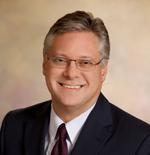
The international development community has long been dedicated to strengthening the “rule of law.”
And with good reason.
It is generally accepted that unless people are equal before the law and entitled to its benefits, sustainable economic growth, a vibrant and transparent political process, and effective human rights protections, just don’t happen. In fact, they are threatened.
As the son and grandson of holocaust survivors, my life-long interest in the rule of law stems from these same concerns: the knowledge that the rule of law is critical to protecting the weak against the strong, ensuring that everyone is treated fairly, and guaranteeing that everyone benefits from equal opportunity. That’s why I have spent most of my adult life dedicated to developing the role of the rule of law. I’ve been fascinated by this concept and goal for over two decades.
Still fresh in my mind is the magic I witnessed at the start of my career observing free and fair elections in countries as diverse as: Albania, Chile, Croatia, Ecuador, and El Salvador and the way that the rule of law helped channel that optimism and energy into political reform, economic development and poverty alleviation. Likewise, I remain intrigued by the power of a court, legal aid clinic, or community based mediation program to bring a poor mother not just justice, but dramatically improved economic security in a single act. I still derive both professional and personal satisfaction working on techniques and assistance programs to improve the lives of others less fortunate.
I have always approached the rule of law as both a conceptual framework and practical tool to address some of the world’s most stubborn problems: poverty, conflict, women’s rights, food security, climate change, the list goes on. But over the last few years while working with IDLO, the World Bank, OSCE, and USAID, whether I was dealing with law and governance issues related to refugees, indigenous populations, or religious conflicts, I noticed a common thread through much of my rule of law work: land.
Refugees are, more often than not, fleeing conflicts over land. Indigenous populations are insecure because of their tenuous control over the land on which they depend for both cultural identity and food. Poor families and their children trapped in refugee camps or crime infested shanty towns lack the ability to feed themselves or develop tools for economic advancement often because they lack secure land rights. And religious conflicts are, more often than not, also disputes over land and land rights. Land and property are at often at the center of the world’s most perplexing and intractable challenges.
My family’s history is marked by this conflict and inspires me to this day. Soon after the Nazis seized my great grandparents’ home and small store, my family became landless refugees and slave laborers.
The ideas that Landesa champions have overlapped tremendously with so many of the most challenging questions that have shaped my life and career. Land and property more broadly, is the fulcrum upon which not only my family history turns, but also that of peoples and nations throughout the world. Property can give people security. And it is control over that property that provides incentive and opportunity. It is this understanding and belief set that prompted me to join Landesa.
Although knowing of their work for many years, I was introduced formally to Landesa at a dinner during the World Justice Forum III hosted by Bill Gates Sr. At that dinner, Landesa’s CEO, Tim Hanstad, explained their work and spoke about how so many of the world’s most challenging problems are connected to land rights: from poverty and conflict, climate change and sustainable development, women’s rights and childhood development, to food security and education. I quickly found myself nodding in agreement as Tim spoke. It just made so much sense. That day’s headlines, with news of a land rush across much of Africa and ongoing food security challenges, only served to give Landesa’s work an even greater sense of urgency.
I was intrigued. And when I looked deeper, I was inspired. Land connected the dots!
Today, this son of a law professor and international judge is now privileged to work alongside another law professor, Roy Prosterman. Forty years after he put pen to paper to outline his thoughts, Roy can count more than 100 million families that have benefited from his work. Roy still teaches at UW’s law school, but inspires over 120 staff world-wide working through Landesa to fulfill his lifelong dream and passion: to give poor rural families control over the land upon which they depend and to contribute toward resolving some of the world’s most intractable problems.
I am now fortunate to be one of them and look forward to sharing more of Landesa’s work in the months and years ahead.
*This article also appears on Landesa's blog, Field Focus.







